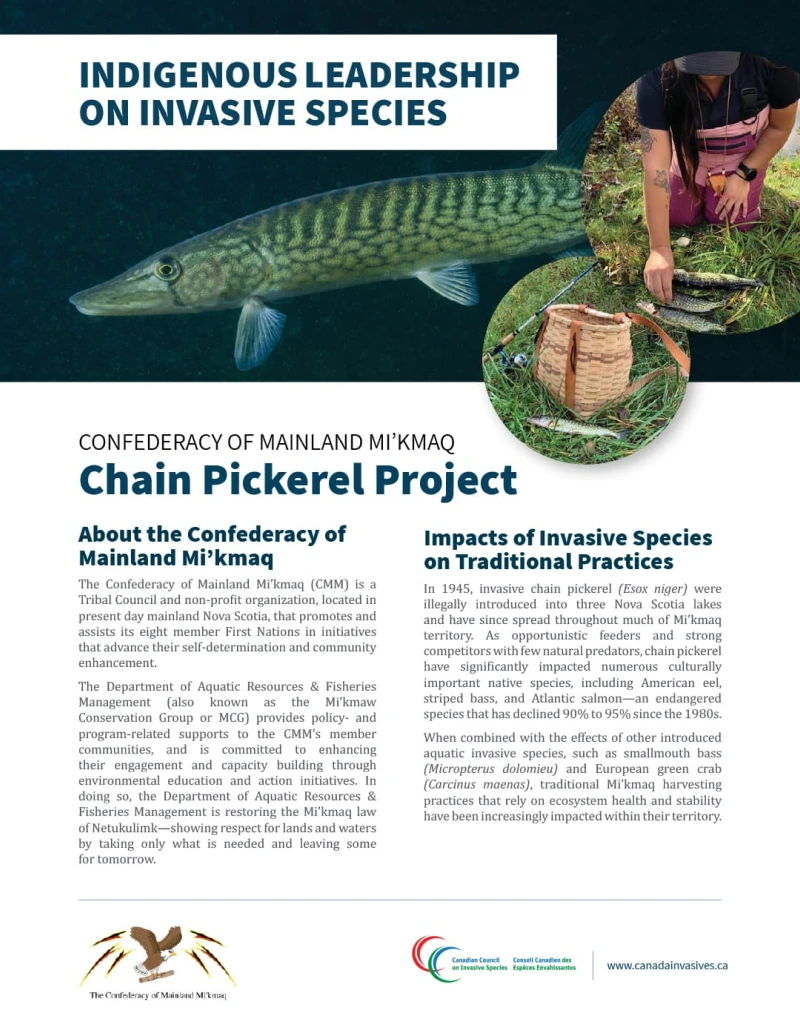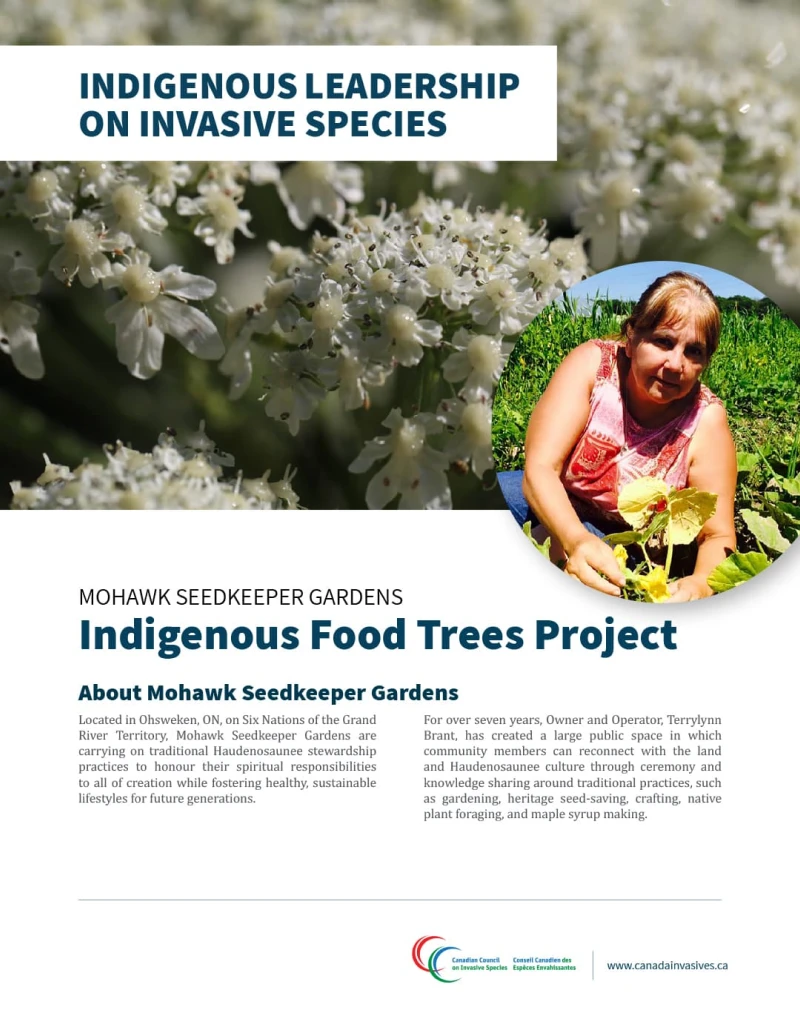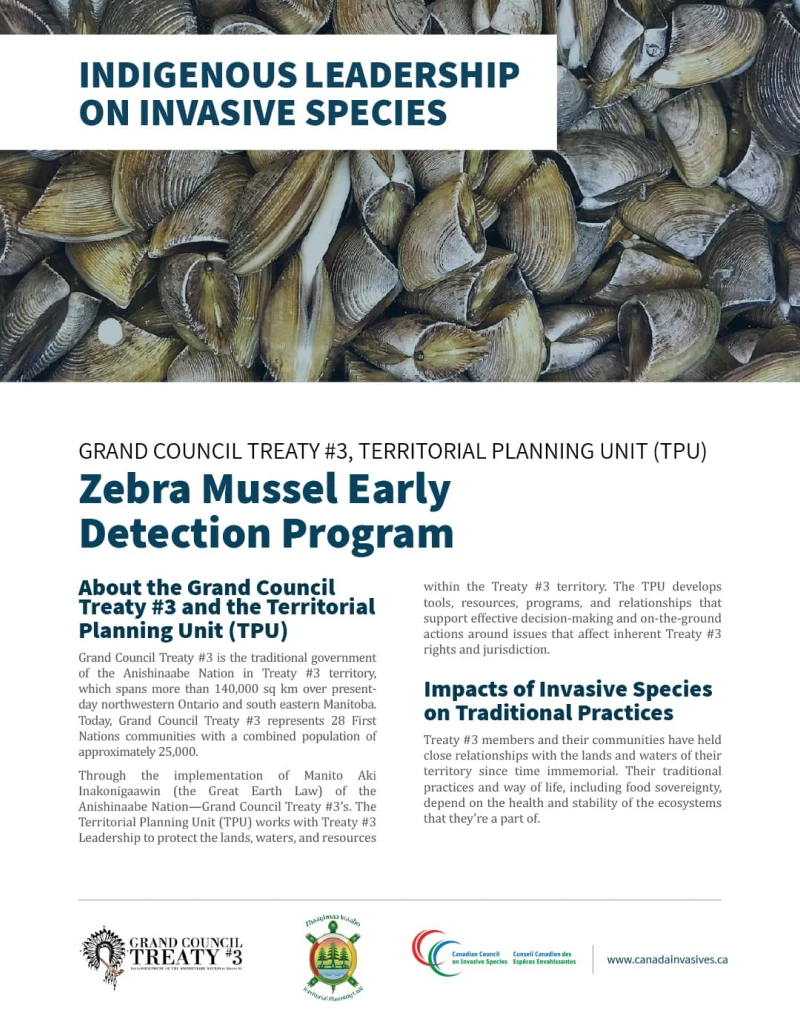Through restoration projects, early detection programs, and land-based education, Indigenous-led efforts are strengthening ecosystem resilience while preserving traditional ways of life. Invasives Canada is committed to highlighting these leadership efforts, fostering collaboration, knowledge sharing, and action to prevent the spread of invasive species and protect the land for future generations.

Confederacy of Mainland Mi’kmaq: Chain Pickerel Project
The Confederacy of Mainland Mi’kmaq (CMM) supports the self-determined priorities of its eight member First Nations in mainland Nova Scotia. Through the Mi’kmaw Conservation Group (MCG), CMM leads initiatives that restore Mi’kmaq law of Netukulimk and address environmental challenges like invasive species.
The Chain Pickerel Project combats the spread of invasive chain pickerel, which threaten culturally important fish species. CMM engages communities through education, citizen science, and traditional harvesting, including the Chain Pickerel Cookbook, which promotes creative solutions. Their work highlights Indigenous leadership in conservation and invasive species management.
Mohawk Seedkeeper Gardens: Indigenous Food Trees Project
Located in Ohsweken, Ontario, on Six Nations of the Grand River Territory, Mohawk Seedkeeper Gardens uphold traditional Haudenosaunee stewardship practices and foster land-based learning. Led by Terrylynn Brant, the gardens serve as a public space for traditional gardening, heritage seed-saving, and sustainable foraging.
The newly launched Indigenous Food Trees Project focuses on revitalizing Haudenosaunee land management by reintroducing native Carolinian food trees and removing invasive species such as giant hogweed and common buckthorn, which threaten culturally significant plants. Through community engagement and hands-on land management, the project strengthens traditional knowledge and food sovereignty, ensuring sustainable practices for future generations.


Grand Council Treaty #3: Zebra Mussel Early Detection Program
The Grand Council Treaty #3 represents 28 First Nations across northwestern Ontario and southeastern Manitoba, working to protect Anishinaabe lands, waters, and resources through the Territorial Planning Unit (TPU).
To address the spread of invasive zebra mussels in Lake of the Woods and Shoal Lake, the TPU launched the Zebra Mussel Early Detection Program. This community-led initiative engages youth and Elders in monitoring local waterways using low-cost settlement samplers to detect zebra mussels before they establish. By combining early detection, public education, and hands-on environmental stewardship, the TPU is helping to safeguard culturally important species like wild rice and walleye from the growing threat of aquatic invasive species.
